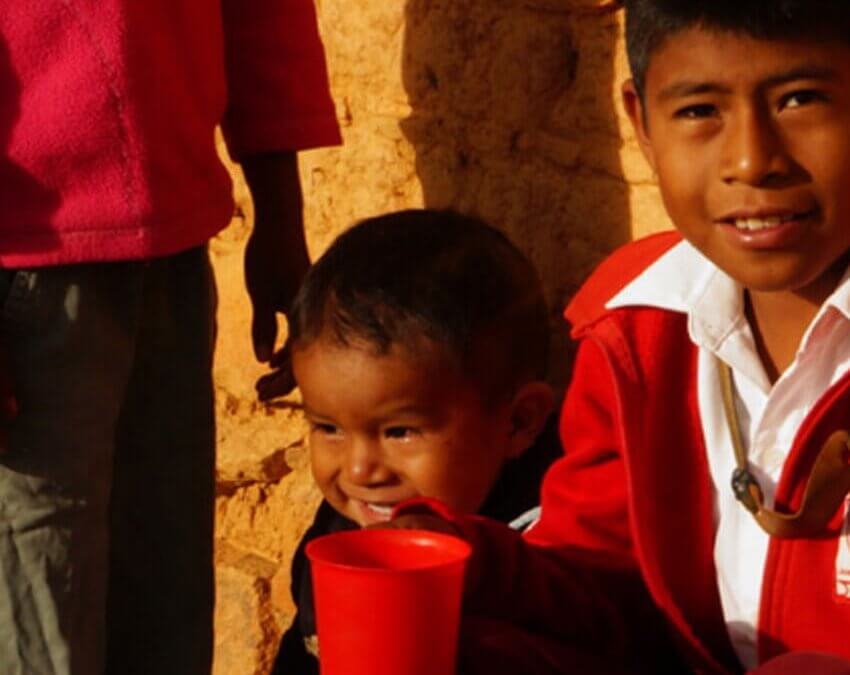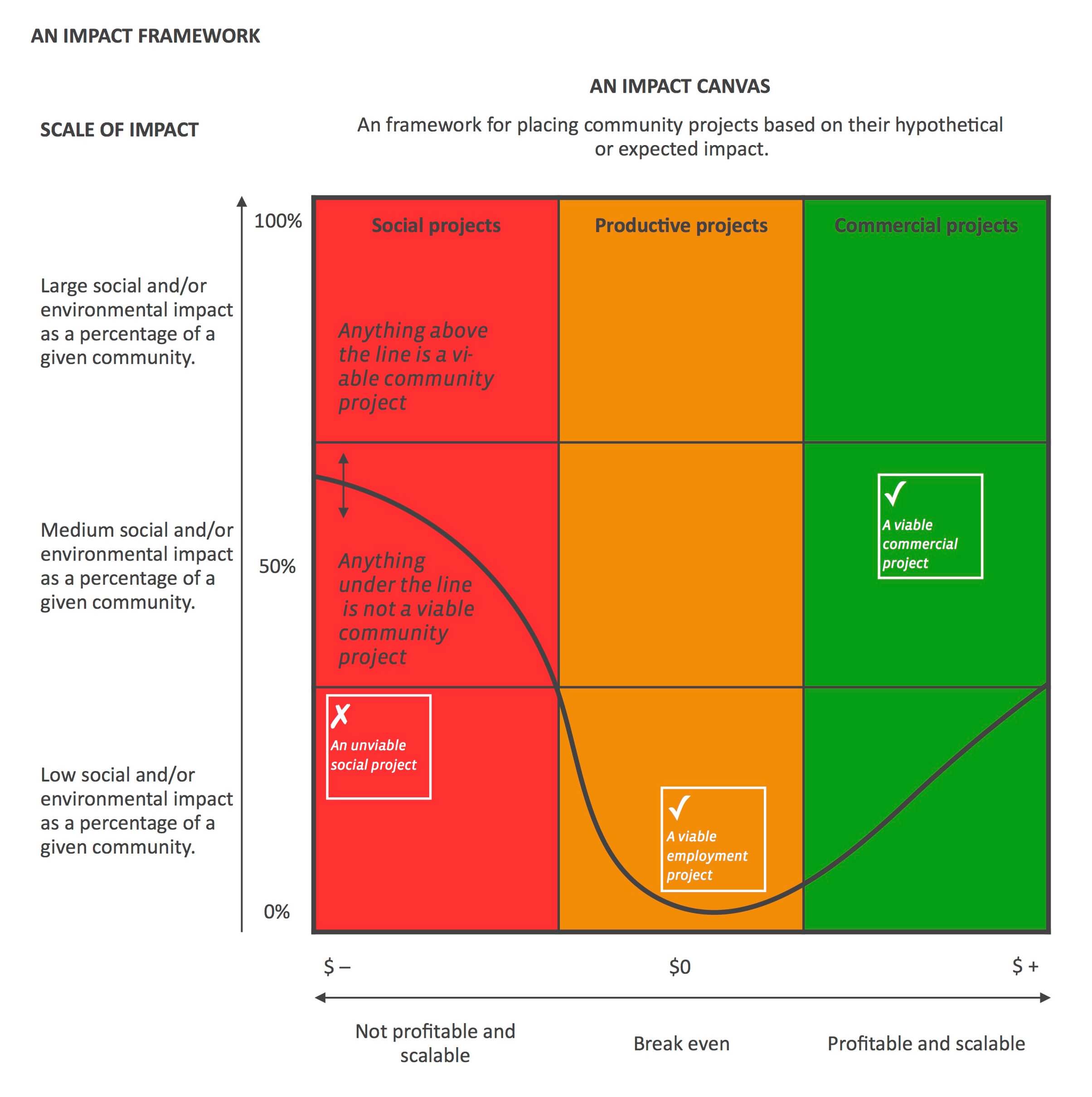As part of the SEED newsletter, we wanted to provide some thought starters on frameworks, models and approaches that we have developed to help communities become more self determining. To kick this off we want to talk impact!
CONSIDERING IMPACT
Social enterprise has increasingly received attention as a ‘new model’ for the design of projects that deliver on a social or environmental outcome in a financially sustainable manner. Although SEED recognises the importance of these purposedriven models, we do question how many community projects can truly fit this definition.
Let’s consider the different types of impacts that are generated from a project.
PRODUCT OR SERVICE IMPACT
A product or service impact relates to a project’s or enterprise’s purpose. For example, a riparian planting project’s impact might seek to improve the habitat quality of a waterway, where this project has been designed specifically to deliver on that outcome.
OPERATIONAL IMPACT
An operational impact relates to the running of a project or enterprise. For example, employment frequently represents an operational impact associated with enterprises.
FINANCIAL IMPACT
A financial impact or profit is also associated with an enterprise. By definition a purpose-driven enterprise (such as a social enterprise) aims to deliver on a product or service impact in a financially positive way (break-even plus), in which the operational impact serves as a secondary benefit of the enterprise (but not the purpose of the enterprise).
So does social enterprise fit a community development approach? Without a doubt—in fact, this inspires our operational model. However, not all community projects have viable futures as social enterprises.
The SEED community development strategy employs all three forms of impact, but that’s where the commonality with social enterprise ends.
- The community may identify an important project that provides a highly beneficial product or service impact. If this project turns out unprofitable, it will likely require subsidization. SEED defines these as social projects.
- Local residents may also identify a simple sole trader project in which the primary impact remains generating employment for a local community member, only covering costs or marginally better. SEED defines these as productive projects.
- And finally, they may identify a purely profitable enterprise (a tourism-based new product or an existing service) whose primary impact seeks a net profit and an income for the community. SEED defines these as commercial projects.
CONSIDERING SCALE
Scale and scalability (scale over time) of impact are also important factors when considering projects within the community.
A social project typically needs to deliver a sufficient scale or scalability of impact (social or environmental) to justify its subsidization.
A productive project can deliver small-scale impact (ex. employment) so long as it is financially sustainable in the short-term.
A commercial project needs to deliver a sufficient scale or scalability of impact (ex. profit) to justify its initial capitalization.
Making sense of impact, profitability and scale is tricky stuff. To help with this, SEED has developed a simple framework to review and appraise community projects (see below).
A HYBRID PORTFOLIO APPROACH
Rather than focus on singular projects that generate impact and achieve minimal financial sustainability, the SEED approach builds portfolios of clustered projects that are mutually supportive, financially sustainable, and deliver on the impact the community desires.
This means choosing arrangements of commercial, social, and productive projects to work together. The commercial projects deliver profit back to the community for reinvestment or direct support for unprofitable but highly impactful social projects and productive projects that create employment and new skills that support ongoing community development.
Though more art than science, the SEED strategy strives to build models to better design these portfolios. This includes different types of investment and legal structures to support development.


